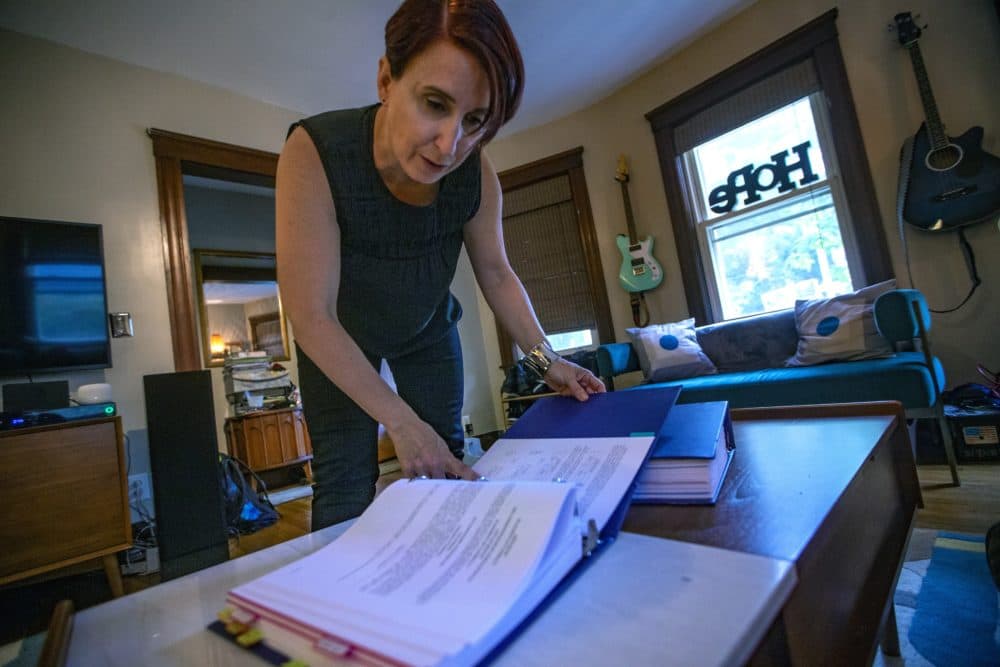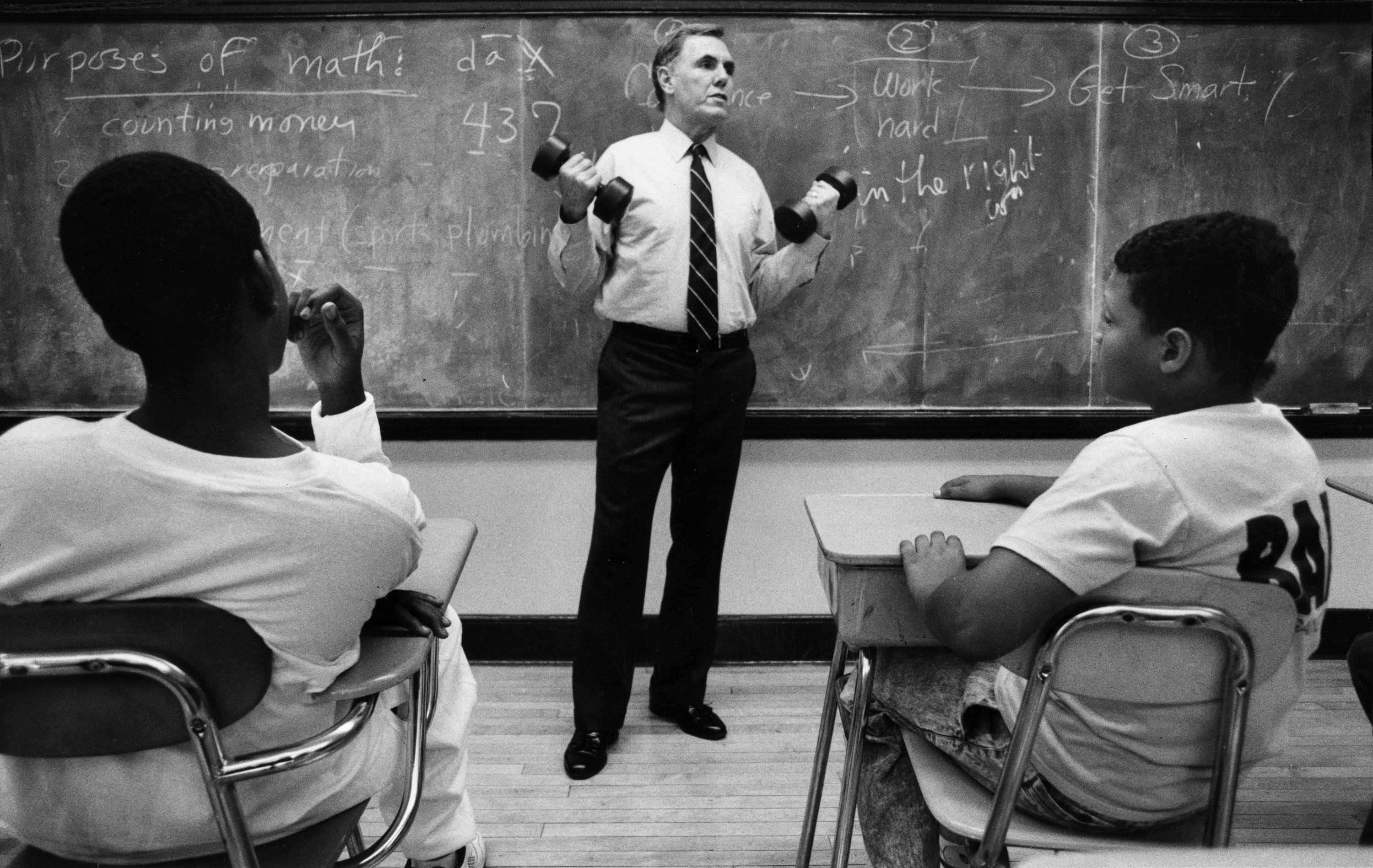Advertisement
Is It Time To Go Back To An Elected School Committee In Boston?
Resume
For 30 years, Boston's mayor has wielded the power to appoint every member of the city's school committee. That power, unique in the state, was supposed to make the district run more smoothly and accountably by removing the distractions of retail politics.
But now, amid a wide-open mayoral race, some voters say the appointed committee hasn't lived up to its promise — and that it's time to go back.
On Monday, an advocacy group called the Boston Coalition for Education Equity launched a campaign to put the question of a return to an elected committee on city ballots this fall, albeit as a non-binding referendum.
City councilors Ricardo Arroyo and Julia Mejia have filed an accompanying home-rule petition that would allow for a return to elections by 2026.
Arroyo — who has long supported that move — said the petition he and Mejia filed is a "placeholder" petition in response to the Coalition's organizing work, designed to give the Council "runway" to implement the change if the measure passes and after a period of public input.
Once that work is complete, any final change to the city charter will need approval from the entire city council, both houses of the state legislature and the governor. And, if history is any guide, its fate would also depend on mayoral leadership.
A June poll published by Suffolk University and the Boston Globe found that more than 87% of voters want a chance to select at least some of the school committee's members, with only 6% voicing support for the current, fully-appointed board.
"A Lever of Accountability"
Like many parents, Kristin Johnson first came before the Boston School Committee to speak out against budget cuts and underfunding at her child's school.
But after several years, Johnson said she decided to get to "the root of the problem" as she saw it: not any particular budget, but the appointed body that oversees and approves them.
It became an obsession: Johnson returned to college coursework and dug through archives to study the committee's history. She says she hoped to fill in the 15-year gap in the public memory between the vicious fights over school desegregation in the mid-1970s and the move to an appointed committee 15 years later.
"What I found was a story of Black organizing for political power in the city of Boston: remarkable people who worked for decades to become elected," Johnson said. "Then, just as soon as they got a toehold into this layer of power in Boston, it was changed to an appointed board."
Jean McGuire, the first Black woman elected to the committee, held her seat from 1981 until the elected committee was disbanded. She formed part of an outspoken bloc of four Black members calling for equity and adequate funding. She still sees the change as a power grab that took away that group's hard-won influence and set up a mayoral monopoly over the district’s large budget.
Now 90, McGuire was one of the 18 people — along with former city councilor Tito Jackson, pastor Willie Bodrick II, and over a dozen parents, students and teachers — who signed the initial petition in support of the ballot question.
As she signed, McGuire said, "the sine qua non of citizenship is the right to vote. It’s your voice. Never give it up."

"It's A Toss-up"
Boston's then-mayor, Ray Flynn first proposed a change to an appointed committee in 1989, telling the Globe that he was "fed up [with the elected body's] constant excuses."
At a press conference that August, Flynn — flanked by parents and City Council allies — asked voters to “come forward and join this grassroots effort… so that we can bring about more professional accountability to the public school system in the city.”
Today, Flynn defends that move as a reasonable response to the volatile situation he inherited: a district in deficit, from which thousands of white families had fled, facing annual, acrimonious fights over its budgets.
Flynn says the elected committee had come to be seen as "a stepping-stone for higher political office" for too many of its members. "I don’t want people who are high-profile sitting on the school board," he said. "I thought I could find people who worked in the neighborhoods, people who are kind of idealistic about the importance of public education."
Tom O'Reilly — who served as president of the elected committee — says the city had many of those idealistic citizens on that body before it was disbanded. He's proud of their efforts to limit corruption and patronage, to reorganize the school department, and appoint the district's first-ever Black superintendent in Laval Wilson. (The committee also vote to fire Wilson five years later.)
“I think it was a mistake to go from elected to appointed. It enabled the school committee to have a buffer between them and the community — and, maybe, who they were representing changed," said O'Reilly, who went on to serve as president of Pine Manor College, which recruited mainly low-income students from Boston and other nearby cities before closing, and is now gradually being incorporated into Boston College.

In 1992, the city's first-ever appointed committee — chosen by Flynn — was its most diverse ever, including future city councilor Felix D. Arroyo and George Joe, the body's first-ever Asian member.
But just before he left office a year later to become the U.S. Ambassador to the Holy See, Flynn wrote that his school-reform efforts had "stalled," and told the Boston Globe that he favored a return to a five-member elected board to be chaired by the mayor.
Now 82, Flynn remains ambivalent about the two systems under consideration. "It's a toss-up," he said, speaking as a former basketball star. "It all depends on who a mayor would appoint,"
Problems arise, he says, if mayors decide to appoint political allies or with an expectation of deference: "They [should] want to be judged based on the independence and the voice of students and parents."
Flynn commended acting mayor Kim Janey's recent appointment of Rafaela Polanco Garcia, a parent-organizer and the body's first member to speak primarily in Spanish. He also expressed interest in a hybrid committee: partly elected and partly appointed.
"Removing Politics," Or Not?
Domingo Morel, a political scientist at the Newark campus of Rutgers University, says Boston was not alone in push to depoliticize education in the closing decades of the 20th century. City leaders were then taking part in a nationwide zeitgeist.
"It's exactly how [the argument] sounds, across the board, across cities and across time: that we can do better by removing politics from school operations," Morel said. (Chicago, Cleveland, Washington, D.C. and New York City undertook similar moves to appointed boards in the 11 years that followed. In June, Illinois's state lawmakers voted to restore a partly-elected board in Chicago.)
"The work of democracy is messy... There's just no shortcut."
Political scientist Domingo Morel
As a political scientist, Morel says he's skeptical of the fundamental logic of that claim: "You're not removing politics — you’re just shifting power from one aspect of politics to another."
As he researched "Takeover", his study of outside interventions in city school districts, Morel says he has found that when members of an appointed committee are particularly outspoken, "they become marginalized within the board" — an observation some made of committee member Regina Robinson after Mayor Marty Walsh didn't renew her appointment in 2019.
Morel believes that parents — especially parents of color — need to feel empowered in school governance for it to work, and believes elections best serve that purpose. But he concedes they're not perfect — for instance, they can easily attract outside money or rekindle "unsavory" parts of ward politics.
And, he notes, they won't bring inclusion or accountability to school leadership on their own. Only mobilized, organized citizens can do that.
“These venues of power and policy, they shift, and you have to stay vigilant," Morel said. "The work of democracy is messy ... and there’s just no shortcut.”
Five major candidates are competing to become the next mayor of Boston. Here's some of what they say they'll do as mayor to make the Boston School Committee more representative and accountable:
John Barros
- “Consider” how to implement a partly-elected and partly-appointed (or hybrid) committee.
- Establish permanent subcommittees for students, parents and other community members on budget, academics, community engagement and education equity.
- Add one more student seat to the committee, and give student members voting power and stipend.
Andrea Campbell
- Implement a hybrid school committee.
- Give student representative voting power and stipend.
- Appoint members who can “truly listen and engage” with families.
Annissa Essaibi George
- No change to member selection, since "our schools do not need any more politics in them," but appoint members representing English learners, students with disabilities, teachers and families.
- Allow mayor to appoint five members, and City Council to appoint four members, including a student and a parent, while subject to public process.
- Give student representative voting power and a stipend.
Kim Janey
- Explore a hybrid committee while preserving “a direct line of accountability to the mayor.”
- Appoint more representative members to the body.
- Add youth members and give all student members voting power.
Michelle Wu
- Implement a "majority-elected" school committee, with some appointed members to focus on early childhood, school facilities and vocational education.
- Give student members voting powers.
- Hold a transparent community process for new appointees.
This segment aired on August 17, 2021.
